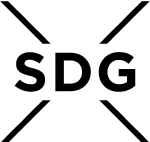Cities are engines of growth and progress. They contribute to substantial economic growth, provide employment to billions, and enable innovation through cross-pollination of ideas and expertise. More people are now living in cities than ever before and recognizing this, a substantial effort within international development goes towards creating green, resilient, equitable, and liveable cities.
How development activity in urban development and cities still has significant blindspots linked to identity: disabled populations find it difficult to access transport, the density of recreational and green spaces is significantly less in Black neighbourhoods or those of religious minorities, and there is still significant housing discrimination linked to faith, gender and sexual minorities.
This panel will focus on the following questions:
- What do we know about the nature and extent of identity-linked exclusion in cities across the world? Which communities are most at risk?
- What are the different kinds of actions that are needed to address this?
- What role do different players in global development need to play more actively to address this issue?
- What is the role that data and measurement play and how can we improve our understanding of this issue?
- What are some innovations or successful examples we can learn from?
Moderator for the session: Shruti Goyal (Associate Partner, Dalberg) & Mokena Makeka (Principal, Dalberg Advisors)
Speakers:
- Dr Mohsin Alam Bhat (Associate Professor and Executive-Director, Center for Public Interest Law, Jindal Global Law School)
- Dr Ghazala Jamil (Professor, Centre for the Study of Law and Governance, Jawaharlal Nehru University)
- Dr Amira Osman, (Research Chair, Spatial Transformation (Spatial transformation chair at the University of Tshwane in SA)
- Kira Intrator (Lead, Habitat Planning and Innovation, Agha Khan Development Network)

